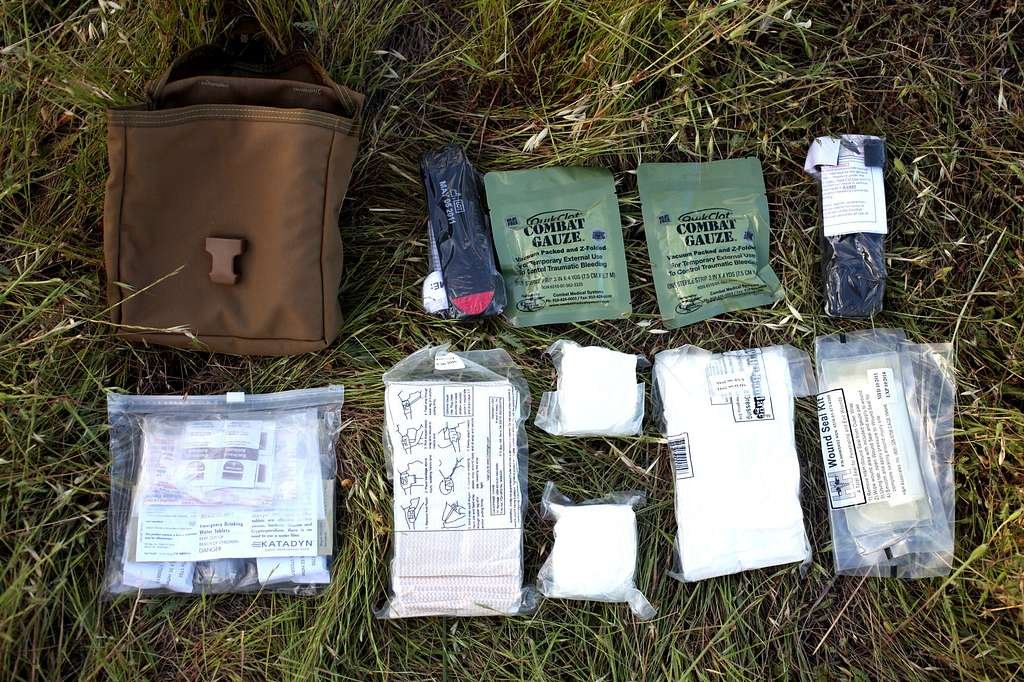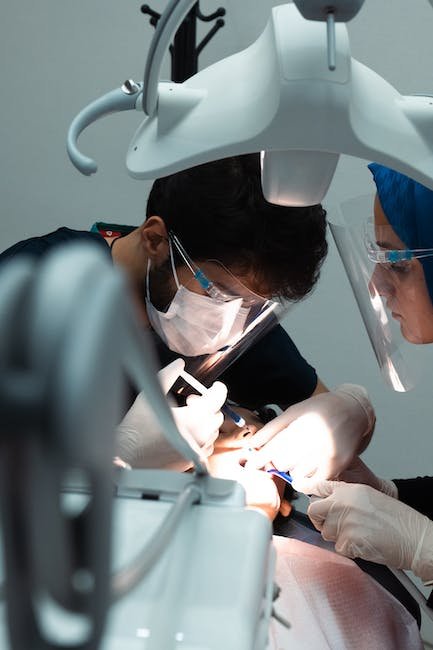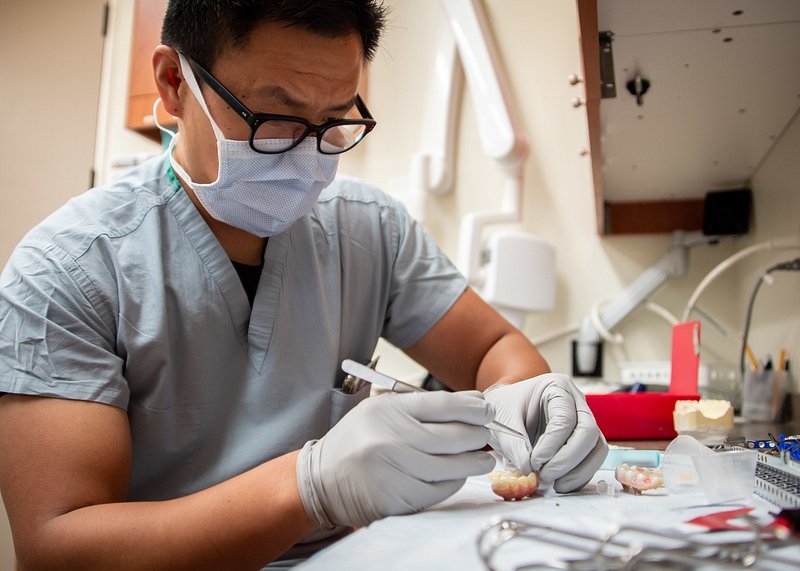Now Reading: The Importance of Sleep in Survival Medicine
-
01
The Importance of Sleep in Survival Medicine

The Importance of Sleep in Survival Medicine
Sleep is a precious commodity that often remains ignored in the realm of survival medicine. In the face of dire circumstances, the primal instinct to persevere tends to overshadow the significance of a good night’s rest. Yet, the undeniable truth remains: sleep is an integral component of optimal health and well-being, even in the harshest of environments. As we journey deep into the captivating landscape of survival medicine, it becomes increasingly clear that slumber holds the key to unlocking our innate resilience and fortitude. Join us as we delve into the multifaceted importance of sleep in the context of survival medicine, unraveling the intricate web of its benefits, consequences, and indispensable role in safeguarding our ultimate chance of survival.
Table of Contents
- The Art of Healing: Understanding the Vital Role of Sleep in Survival Medicine
- Exploring the Physiology: How Sleep Supports the Body’s Natural Healing Processes
- Strategies for Optimal Rest: Techniques to Maximize Sleep Quality in Challenging Survival Environments
- Prioritizing Sleep: Essential Tips for Incorporating Adequate Rest into a Survival Medicine Regimen
- Unraveling the Mind-Body Connection: Harnessing the Power of Sleep for Improved Recovery and Resilience
- Q&A
- Concluding Remarks

The Art of Healing: Understanding the Vital Role of Sleep in Survival Medicine
In the realm of survival medicine, where every moment counts, sleep might seem like a luxury that can be easily sacrificed. However, the truth is that proper rest is a crucial factor in maintaining optimum physical and mental health during challenging situations. Here, we explore the often overlooked significance of sleep in survival scenarios and why it is an art that cannot be ignored.
The Healing Power of Sleep:
- Physical Restoration: Sleep plays a pivotal role in repairing and rejuvenating the body. During sleep, our cells undergo a process of regeneration, aiding in tissue repair and muscle recovery. Proper rest helps bolster our immune system, making it more resilient against infections and illnesses.
- Mental Rejuvenation: Just as sleep rejuvenates the body, it also revitalizes the mind. Adequate sleep promotes cognitive function, enhances memory retention, and improves concentration. In survival situations, mental clarity and quick decision-making can be a matter of life and death, making sleep an essential tool in employing the art of healing.
- Emotional Well-being: Sleep acts as the foundation for emotional well-being. Lack of sleep can lead to increased stress levels, irritability, and diminished emotional resilience. In survival scenarios, maintaining a positive mindset and emotional well-being can greatly enhance one’s ability to endure and overcome obstacles.
The Art of Sleep in Survival:
- Strategic Rest: In high-stress situations, finding opportunities for quality sleep can be challenging. Understanding when and how to prioritize rest is a skill that distinguishes those who truly comprehend the art of healing. Strategic power naps, utilizing natural sleep-inducing herbs, and establishing a safe and comfortable sleep environment are all invaluable techniques in the art of sleep survival.
- Sleep Optimization: In survival medicine, quality of sleep is as essential as quantity. Optimal sleep requires managing external factors like temperature, noise, and light. Utilizing insulation materials, earplugs, and eye masks can drastically improve the quality of sleep, enabling individuals to wake up refreshed and ready to face the challenges ahead.
Ultimately, understanding the vital role of sleep in survival medicine can be a game-changer. By appreciating the healing power of sleep and mastering the art of rest in challenging circumstances, individuals can better equip themselves for the arduous journey of survival.

Exploring the Physiology: How Sleep Supports the Body’s Natural Healing Processes
Sleep is essential for the body’s natural healing processes. During sleep, our body goes through important physiological changes that support its ability to repair and restore. Understanding the fascinating mechanisms at play during this restorative period can help us appreciate the power of a good night’s sleep.
One crucial process that occurs during sleep is the production and release of growth hormones. These hormones help facilitate tissue repair, muscle growth, and bone density, among other essential functions. Additionally, the immune system gets a boost while we sleep, allowing it to effectively fight off infections and heal wounds.
Not only does sleep support physical healing, but it also plays a significant role in cognitive restoration. While we sleep, our brain goes through a series of stages, including slow wave sleep (SWS) and rapid eye movement (REM) sleep. These stages are vital for consolidating memories, processing emotions, and maintaining overall cognitive function. Lack of sleep can impair these processes, leading to difficulties in concentration, memory loss, and even emotional instability.
- Key benefits of sleep on the body’s healing processes:
- Promotes tissue repair and regeneration
- Strengthens the immune system
- Facilitates growth and development
In conclusion, sleep is a powerful ally when it comes to supporting the body’s natural healing processes. So next time you prioritize your health, remember to prioritize your sleep as well!
Strategies for Optimal Rest: Techniques to Maximize Sleep Quality in Challenging Survival Environments
Restful sleep is essential for maintaining optimal performance and mental clarity, especially in challenging survival environments where rest may be hard to come by. To maximize sleep quality in such situations, it is crucial to employ effective strategies that promote relaxation and ensure a restorative rest. Below are some techniques that can help you achieve just that:
- Create a Comfortable Sleeping Environment: Even in challenging survival environments, making your sleep space as comfortable as possible can greatly enhance the quality of your rest. Utilize any available materials to pad the ground or construct a makeshift bed, and consider wrapping yourself in thermal blankets for added warmth and comfort.
- Establish a Consistent Sleep Schedule: While it may be tempting to forgo regular sleep patterns in a survival situation, sticking to a consistent sleep schedule can help regulate your body’s internal clock and optimize your sleep quality. Try to sleep and wake up at the same time every day, even if it means adjusting your routine to match daylight hours.
- Practice Relaxation Techniques: Managing stress and promoting relaxation before bedtime can significantly improve your sleep quality. Consider incorporating activities such as deep breathing exercises, meditation, or gentle stretching into your pre-sleep routine. These practices can help calm your mind and prepare your body for a restful night’s sleep.
Remember, even in challenging survival environments, prioritizing rest and implementing these strategies can help you effectively maximize sleep quality, ensuring you are well-rested and ready to face any obstacles that come your way.
Prioritizing Sleep: Essential Tips for Incorporating Adequate Rest into a Survival Medicine Regimen
Sleep is a fundamental aspect of maintaining optimal health, especially in the context of a survival medicine regimen. Quality rest plays a vital role in the body’s ability to heal and recover, boosting our immune system and keeping our mental faculties sharp. Here are some essential tips to help you prioritize sleep and incorporate it into your survival medicine routine:
- Establish a consistent sleep schedule: Set a regular bedtime and wake-up time, even in emergency situations. This will regulate your body’s internal clock and improve the quality of your sleep.
- Create a sleep-friendly environment: Ensure your surroundings are conducive to a good night’s rest. Keep your sleeping area clean, comfortable, and free from distractions. Dim the lights and consider using earplugs or an eye mask if necessary.
- Avoid stimulants and electronics before bed: Stay away from caffeine, nicotine, and electronic devices in the hours leading up to sleep. These can interfere with your ability to fall asleep and negatively impact the quality of your rest.
- Practice relaxation techniques: Incorporate activities that promote relaxation into your evening routine. This could include deep breathing exercises, meditation, gentle stretching, or reading a book.
- Ensure physical comfort: Invest in a supportive mattress and pillows that align with your individual preferences. Consider using blankets or sleeping bags suitable for the climate you are in, providing adequate warmth and coziness.
Prioritizing sleep within your survival medicine regimen is crucial. By following these tips, you’ll increase your chances of getting the restorative sleep you need to stay alert, agile, and mentally focused, even in the most challenging circumstances.
Unraveling the Mind-Body Connection: Harnessing the Power of Sleep for Improved Recovery and Resilience
The mind and body are intricately connected, with each having a profound effect on the other. One aspect of this intricate connection that often goes overlooked is the power of sleep. Sleep is not just a time of rest and rejuvenation; it plays a crucial role in our overall recovery and resilience.
During sleep, our bodies go through various processes that promote healing and repair. This includes the release of growth hormones that help build and repair tissues, the consolidation of memories and learning, and the removal of toxins from the brain. By harnessing the power of sleep, we can enhance these processes and optimize our recovery.
Here are a few ways in which sleep can be harnessed for improved recovery and resilience:
- Establish a consistent sleep schedule: Going to bed and waking up at the same time every day helps regulate our body’s internal clock, improving the overall quality of sleep.
- Create a sleep-friendly environment: Ensure your sleep environment is dark, quiet, and cool to promote deep, uninterrupted sleep. Invest in a comfortable mattress and pillows that support your body’s needs.
- Practice relaxation techniques before bedtime: Engage in activities like gentle stretching, deep breathing exercises, or meditation to calm the mind and prepare your body for sleep.
- Avoid stimulants before bed: Caffeine, nicotine, alcohol, and electronics can interfere with your sleep. Avoid consuming these substances and limit screen time before bedtime.
- Invest in a comfortable sleep routine: Create a pre-sleep routine that relaxes and signals to your mind and body that it’s time to wind down. This could include reading a book, taking a warm bath, or listening to calming music.
By prioritizing and optimizing sleep, we can tap into its incredible power to enhance our recovery and resilience. Remember, a well-rested mind and body are better equipped to face the challenges of daily life.
Q&A
Why is sleep important in survival medicine?
Sleep is crucial in survival medicine as it helps our bodies recover and heal from injuries and illnesses. It also supports our immune system, improves cognitive function, and enhances overall well-being, all of which are essential for surviving in difficult circumstances.
Does lack of sleep affect our ability to deal with emergencies?
Yes, lack of sleep can impair our decision-making skills, increase our susceptibility to stress, and lower our overall performance. In emergency situations, being well-rested is vital for clear thinking, quick reflexes, and the ability to handle high-pressure scenarios.
How does sleep affect our immune system?
During sleep, our bodies produce and release cytokines, proteins that target infection and inflammation. These proteins are essential for bolstering our immune system, helping us fight off infections, injuries, and illnesses that may arise in survival situations.
What happens to our cognitive function when we are sleep-deprived?
Lack of sleep negatively impacts our cognitive function, including memory, attention, and concentration. In survival scenarios, being mentally sharp and focused is crucial for making well-informed decisions and solving complex problems effectively.
Can sleep deprivation lead to physical health issues?
Yes, sleep deprivation can contribute to a range of physical health problems, including weakened immune system, increased inflammation, higher blood pressure, and a greater risk of developing chronic conditions. In survival medicine, maintaining good physical health is vital for ensuring the body’s ability to withstand challenges and recover from injuries.
How can sleep improve overall well-being in survival situations?
Adequate sleep enhances our mood, reduces anxiety and stress levels, and increases our ability to cope with challenging circumstances. This state of well-being is essential when facing the physical and mental demands of survival medicine.
Are there any strategies for improving sleep quality in survival situations?
Yes, some strategies include creating a suitable sleep environment, practicing relaxation techniques before bed, establishing a consistent sleep schedule, and avoiding substances that can disrupt sleep. Prioritizing sleep hygiene is essential for maximizing restful sleep and ensuring optimal performance during survival scenarios.
What role does sleep play in injury and wound healing?
Sleep is critical for the body’s natural healing processes. During sleep, tissue repair and regeneration occur, which accelerates the healing of injuries and wounds. In survival medicine, obtaining sufficient sleep is vital for enabling the body to recover and rebuild, ensuring a better chance of survival.
Concluding Remarks
As we conclude our exploration into the intriguing realm of survival medicine, let us not overlook the crucial role that sleep plays in this extraordinary field. With every passing day, our understanding of the human body grows deeper, revealing fascinating connections between our sleep patterns and our overall well-being. In the wild, where every step could mean the difference between life and death, the significance of a good night’s sleep cannot be overstated.
Awakening to the vibrant chorus of nature, we find solace in the belief that sleep is a mere luxury, a respite for the weary. Yet, survival experts and seasoned healers will attest to its undeniable importance. In the realm of medicine, sleep is often overshadowed by its more flashy counterparts—emergency procedures, medical treatments, and expedient diagnoses. However, it is in the realm of sleep that our bodies rebuild, recharge, and rejuvenate; readying themselves for formidable challenges that lay ahead.
As day fades into night, our bodies embark upon a miraculous journey of restoration. It is during these quiet moments, this surrender to slumber, that our cellular soldiers mobilize to repair any damage incurred throughout the day. The wear and tear of physical exertion, the mental strain of decision-making, and the emotional burdens we carry are all addressed under the cloak of darkness.
Beyond the realm of physical rejuvenation, sleep is an unyielding ally for the mind. In the face of the harshest circumstances, a well-rested brain can unleash unparalleled creativity, enhance problem-solving skills, and foster resilience against the most daunting challenges. It is only in the absence of fatigue that we can tap into the limitless potential stored within the recesses of our minds.
For survivalists, medical practitioners, and anyone venturing into the untamed wilderness, harnessing the power of sleep becomes a formidable weapon against adversity. It is a crucial bridge between the exhaustion of the physical realm and the boundless energy required to overcome even the direst of situations. In understanding its importance, we come to view sleep not as a luxury but as an invaluable tool within our survival arsenal.
As the night sky blankets the earth, illuminating the path to rest, let us acknowledge the profound bond between sleep and survival. May we embark upon our ventures equipped not only with medical know-how and provisions but with the wisdom to honor the sanctity of slumber. In sleep, we fortify our bodies, sharpen our minds, and pave the way for a future filled with resilience, determination, and, ultimately, the remarkable art of survival.
As an affiliate, my content may feature links to products I personally use and recommend. By taking action, like subscribing or making a purchase, you’ll be supporting my work and fueling my taco cravings at the same time. Win-win, right?
Want to read more? Check out our Affiliate Disclosure page.





